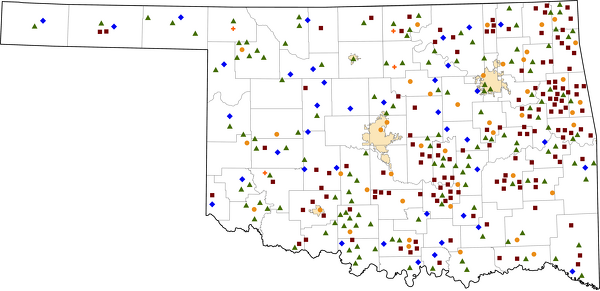Oklahoma
State Office of Rural Health
Oklahoma Office of Rural Health
Phone: 405.945.8608
view details
Oklahoma Nonmetro Population
3,995,260
Estimated population
1,294,757
(32.4%)
People living in nonmetro areas
Oklahoma Rural Healthcare Facilities
39
Critical Access Hospitals
4
Rural Emergency Hospitals
143
Rural Health Clinics
138
Federally Qualified Health Centers*
43
Short Term/PPS Hospitals*
*Sites according to data.HRSA.gov (July 2025), showing only locations outside of
U.S. Census
Bureau Urban Areas with a population of 50,000 or more
Last Updated: 9/11/2025
Last Reviewed: 8/17/2023



Selected Social Determinants of Health for Rural Oklahoma